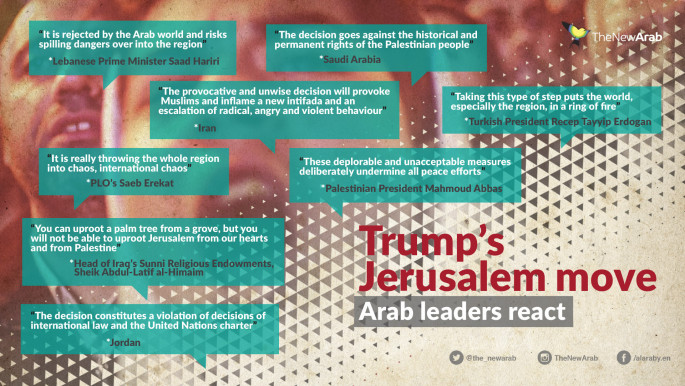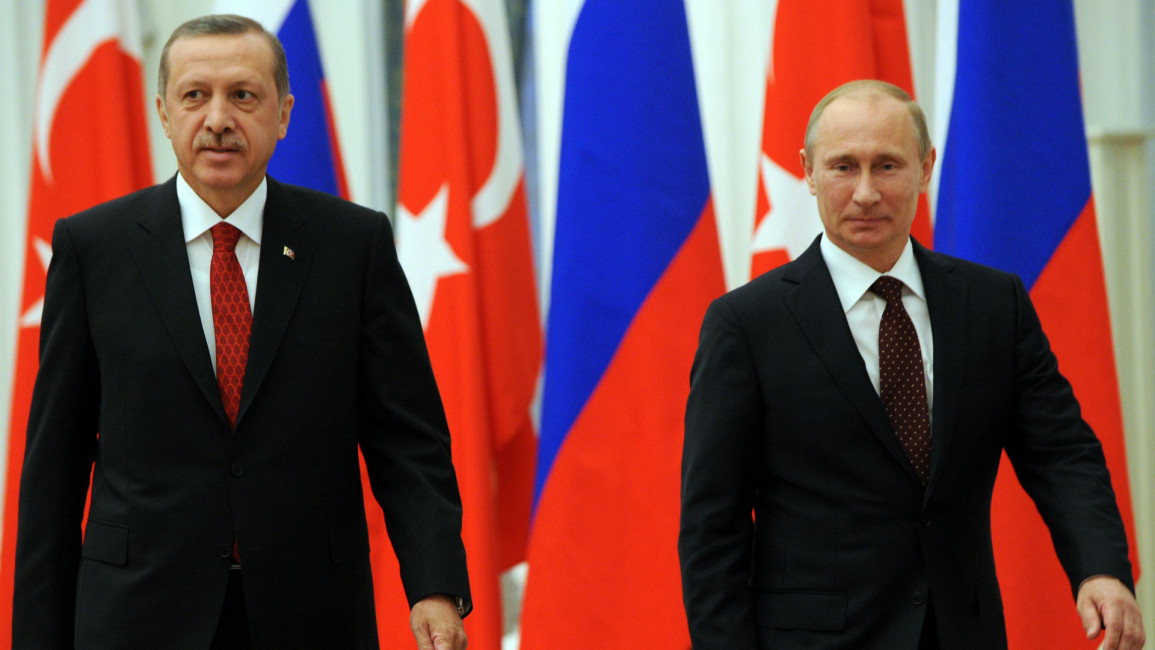Erdogan, Putin 'finalise missile deal, agree on Jerusalem'
As relations between Turkey and Israel find themselves strained once again amid the US president's decision to recognise Jerusalem as the capital of Israel, the meeting is a clear snub to NATO.
Russian president Putin concluded his whirlwind one day-tour in the Middle East on Monday in Ankara.
Putin made a stopover at the Hmeimim air base in Syria's coastal province of Latakia while en route to Egypt and announced a partial pullout of Russian forces from the war-torn country.
After the unscheduled stop in Syria, Putin headed to Cairo where he was met by Sisi at the International airport. A final contract for the construction of Egypt's first nuclear power plant was signed by Moscow and Cairo.
The deal marked a significant leap in bilateral ties and evidence of Moscow's expanding military role in a turbulent Middle East. The deal will likely irk the United States, until now a top Egypt military ally.
Putin's tour comes amid growing anger in the region over Trump's decision to move the American embassy to Jerusalem, recognising it as the capital of Israel.
The Russian president's last stop in Ankara, where he joined his Turkish counterpart in criticising the US decision, signalled warming ties between the two countries.
Russia and Turkey continue to back opposing sides in the Syria war and their relations were severely strained after Turkey shot down a Russian warplane near the Turkish-Syrian border in 2015.
 |
The weapons cannot be integrated into the NATO's defences, signalling a snub to Washington and its allies |  |
But since a failed coup attempt in Turkey, Putin has voiced his support for Erdogan and courted closer relations with the NATO member. The two countries have since cooperated closely on establishing de-escalation zones in Syria.
Moscow and Ankara are also working to build the TurkStream gas pipeline from Russia to Turkey, and the Akkuyu nuclear power plant, which is being built in Turkey with Russian collaboration.
In the coming week, Turkish and Russian officials are expected to meet to finalise Turkey's S-400 surface-to-air missile system deals, the negotiations of which have been more than a year in the making.
The weapons cannot be integrated into the NATO's defences, signalling a snub to Washington and its allies.
Jerusalem meanwhile remains a key issue in the Israeli-Palestinian conflict, and many Arab leaders and others have reacted in anger.
On Monday, Erdogan took direct aim at Washington saying in a speech in Ankara, "With their decision to recognise Jerusalem as Israel's capital, the United States has become a partner in this bloodshed."
Ankara is hosting a pan-Islamic summit on Wednesday to study further actions on Jerusalem, as tensions between the Islamic world and the United States continue to flare up over the holy city annexed by Israel, a move now endorsed by Washington in violation of international consensus.


![South Sudan famine [AFP] South Sudan famine [AFP]](/sites/default/files/styles/image_212x120/public/media/images/5FED4B35-6177-43AD-844A-5C63373FCF89.jpg?h=d1cb525d&itok=K8KGEDoS)
